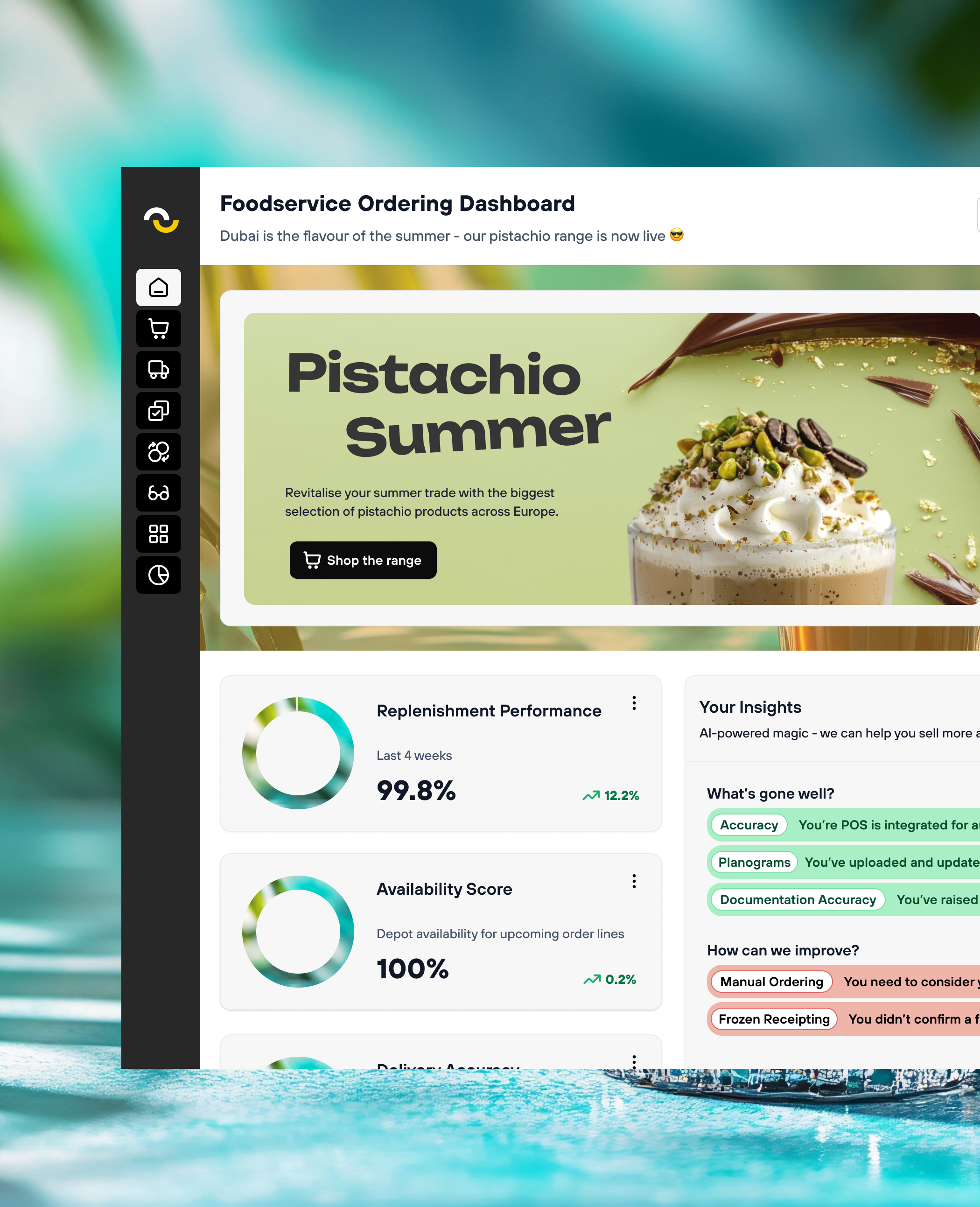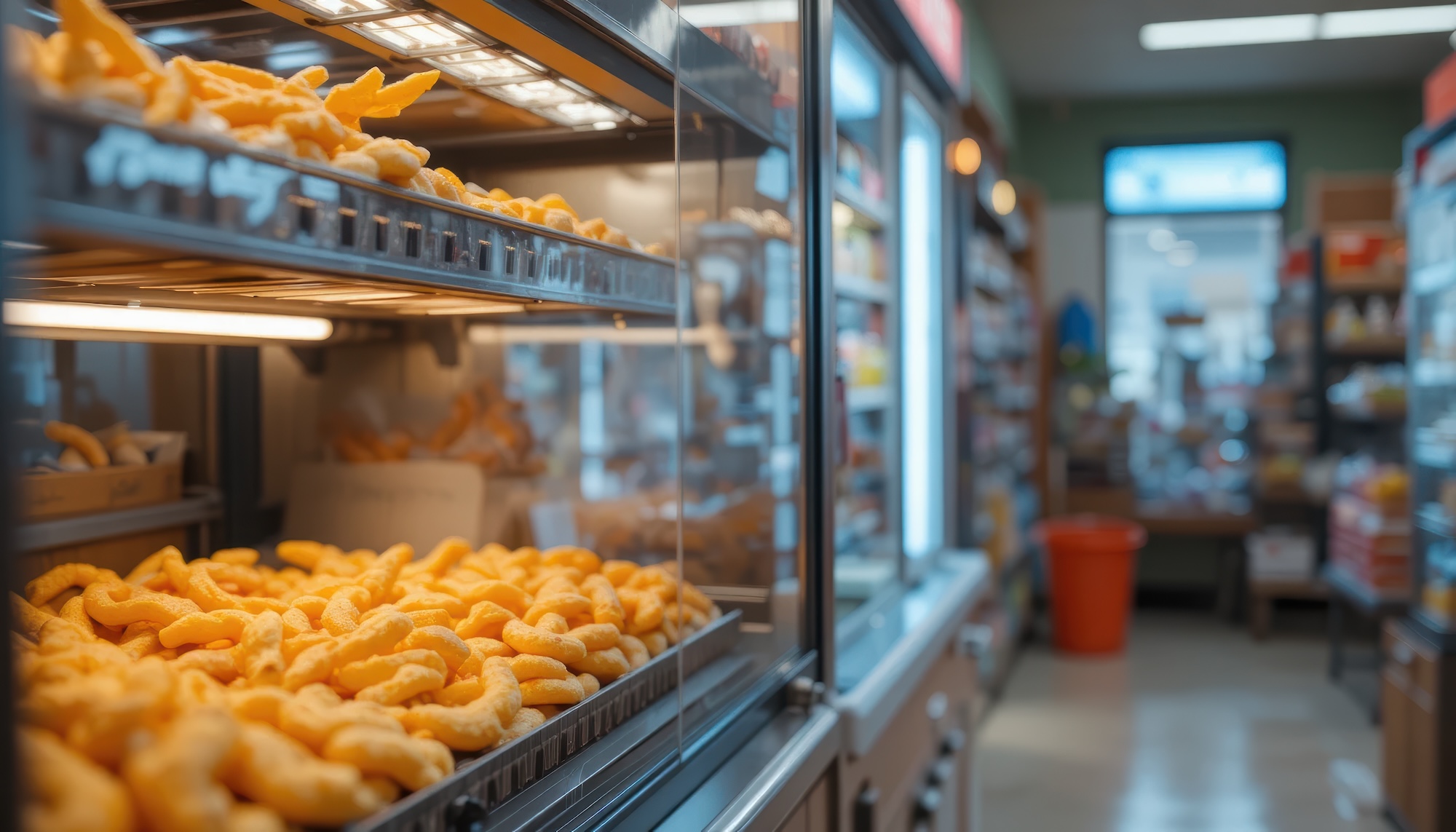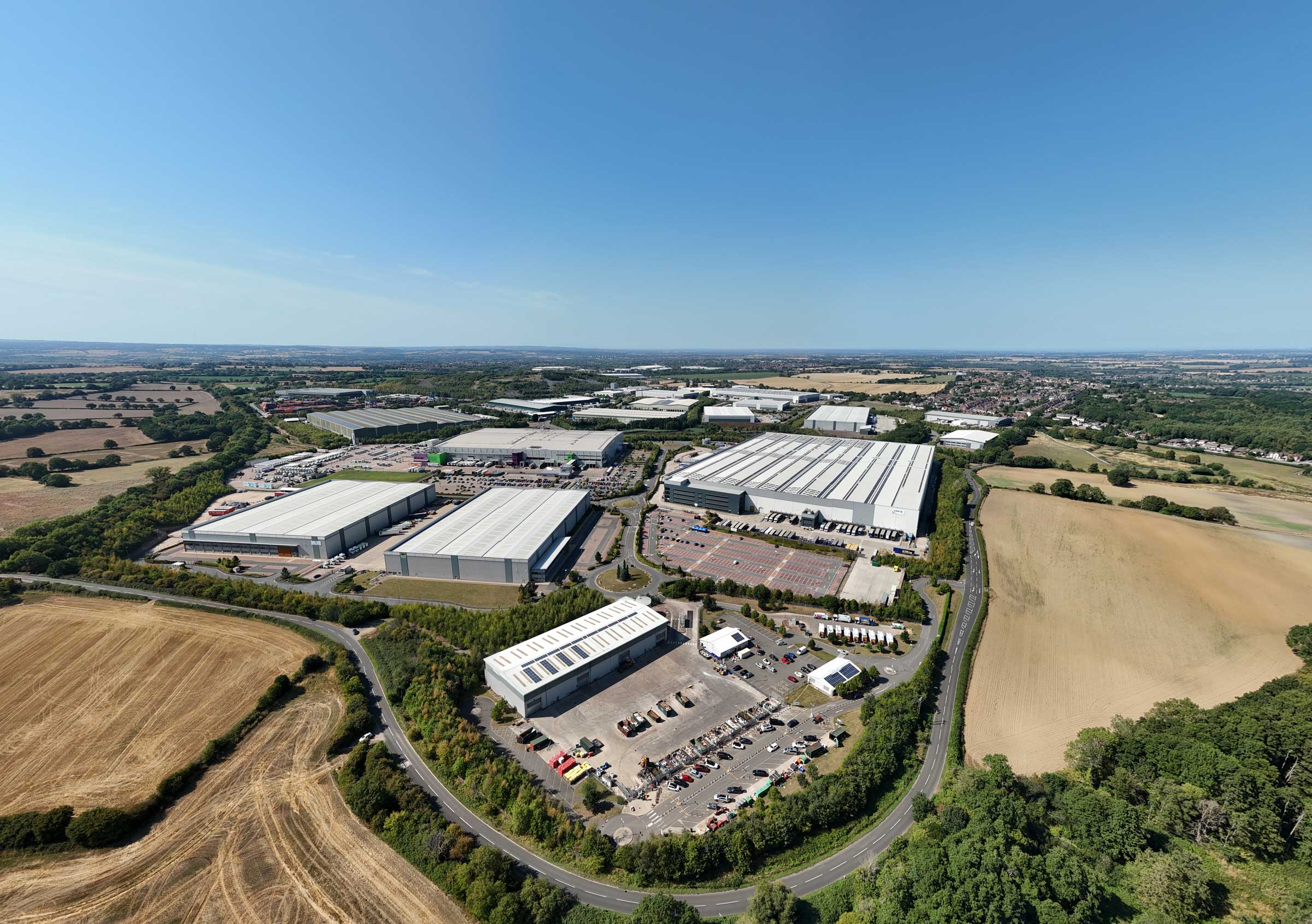The UK’s food security is under increasing threat from a complex interplay of factors—climate change, economic volatility, geopolitical tensions, and supply chain vulnerabilities. A recent report highlighted by The Guardian underscores the urgency of addressing these challenges, warning that without decisive action, the UK could face significant risks to the stability, accessibility, and affordability of its food supply.
While traditional strategies have focused on agricultural resilience and trade diversification, it’s becoming clear that technology will be the linchpin in building a robust, future-proof food system. Advanced supply chain management systems, artificial intelligence (AI), and predictive analytics are no longer just efficiency tools; they are critical components in national food security strategies.
The Fragility of the Modern Food Supply Chain
The UK’s food supply is a complex, global web. Approximately 46% of the food consumed in the UK is imported, with heavy reliance on fresh produce from regions vulnerable to climate disruptions, such as Southern Europe and North Africa. This dependence creates exposure to risks beyond the UK’s control—extreme weather, geopolitical conflicts, and fluctuating trade policies can disrupt supply lines overnight.
Recent climate events have demonstrated the fragility of this system. Droughts in Spain, floods in Pakistan, and heatwaves across Europe have caused crop failures, leading to shortages and price spikes. Domestically, unpredictable weather has hampered the UK’s own agricultural output. The National Farmers’ Union (NFU) has warned that without investment in resilient food systems, both growers and consumers will face escalating costs and reduced food availability.
But while environmental and geopolitical factors are difficult to control, the ability to anticipate, adapt, and respond to these disruptions is within reach—if the right technology is in place.
Predictive Analytics: Seeing Around the Corner
At the heart of a resilient food system is the ability to forecast disruptions before they occur. Predictive analytics, powered by AI and big data, can provide unparalleled insights into supply chain risks.
By analysing vast datasets—including weather patterns, crop yields, transportation schedules, and even geopolitical developments—AI models can predict potential disruptions weeks or even months in advance. This allows businesses to adjust procurement strategies, diversify suppliers, and manage inventory levels proactively rather than reactively.
For example, a supply chain platform using predictive ordering algorithms can identify patterns of declining crop yields in specific regions due to drought. Retailers can then shift orders to suppliers in unaffected areas or adjust inventory levels to mitigate shortages. This level of foresight is critical not only for commercial resilience but also for ensuring food availability at the national level.
Digital Supply Chain Management: From Visibility to Control
While prediction is key, visibility across the entire supply chain is equally important. Many supply chain disruptions escalate simply because companies lack real-time data on where their products are, how they are being transported, and the conditions affecting them.
Modern supply chain management platforms can integrate data from multiple sources—warehouse inventories, transport logs, weather reports, and even social media sentiment—to create a comprehensive, real-time picture of the entire supply network. This end-to-end visibility enables faster decision-making and more effective crisis management.
For instance, if a transportation route is suddenly closed due to political unrest, a digital supply chain system can immediately reroute shipments through alternative paths, notify affected stakeholders, and update delivery timelines automatically. This reduces delays, prevents stockouts, and maintains the flow of goods even in volatile conditions.
AI-Driven Efficiency: Reducing Waste, Increasing Resilience
Food security isn’t just about having enough food; it’s about managing resources efficiently. Food waste remains a significant issue in the UK, with an estimated 9.5 million tonnes wasted annually. Reducing this waste not only improves food availability but also enhances the sustainability of the supply chain.
AI-driven demand forecasting can play a crucial role here. By accurately predicting customer demand at the store level, businesses can optimise their ordering processes, reducing overstocking and minimising perishable waste. This is particularly important for fresh produce, dairy, and meat products, where shelf life is limited.
Furthermore, AI can identify inefficiencies in distribution networks—such as redundant transportation routes or underutilised storage facilities—allowing businesses to streamline operations, cut costs, and reduce their environmental footprint. In the context of food security, these efficiencies translate directly into increased resilience, as leaner, more agile supply chains are better able to adapt to shocks.
The Human Factor: Empowering Decision-Makers with Data
While technology provides the tools, human decision-makers remain central to food security. The real power of digital platforms lies in their ability to empower people—supply chain managers, procurement officers, policymakers—with actionable insights.
For example, digital assistants powered by AI can process complex datasets and present key information in an easily digestible format. Store managers can receive real-time recommendations on stock levels, while executives can view dashboards highlighting potential supply chain risks across multiple regions. This democratisation of data ensures that critical decisions are based on accurate, up-to-date information, reducing the likelihood of errors and delays.
Moreover, these systems can facilitate better collaboration across the supply chain. Manufacturers, distributors, retailers, and government agencies can share data securely, fostering a more coordinated response to disruptions. In a crisis, this interconnectedness can be the difference between a contained issue and a nationwide shortage.
Conclusion: Building a Resilient Food Future
The challenges facing the UK’s food security are complex and multifaceted. Climate change, economic volatility, and geopolitical risks are not going away—in fact, they are likely to intensify in the coming years. However, by leveraging technology, the UK can transform its food supply chain from a fragile network into a resilient, adaptive system capable of withstanding even the most severe shocks.
For decision-makers in the food industry, the message is clear: investing in digital supply chain technologies is not just a matter of operational efficiency—it is a strategic imperative for national food security. Predictive analytics, real-time visibility, and AI-driven optimisation are no longer optional; they are essential tools for navigating an uncertain future.
As the food landscape continues to evolve, those who embrace these technologies will not only protect their own businesses but also play a vital role in safeguarding the UK’s food supply for generations to come.
Sources
1. The Guardian – “Urgent action needed to ensure UK food security, report warns”
2. UK Department for Environment, Food & Rural Affairs (DEFRA) – UK Food Security Report 2024
https://www.gov.uk/government/publications/united-kingdom-food-security-report-2024
3. National Farmers’ Union (NFU) – Food Security Concerns and Policy Updates
https://www.nfuonline.com/updates-and-information/uk-food-security-report/
4. Chatham House – “Global Food Security: Risks and Opportunities”
https://www.chathamhouse.org/2024/12/global-food-security-risks-and-opportunities
5. The Institute for Government – “The UK’s Food Supply Chains: Challenges and Policy Responses”
https://www.instituteforgovernment.org.uk/publication/uk-food-supply-chains
6. World Economic Forum – “How Technology Can Improve Global Food Security”
https://www.weforum.org/agenda/2024/09/technology-improve-global-food-security/
7. McKinsey & Company – “The Future of Food: How AI and Data Are Transforming Supply Chains”
https://www.mckinsey.com/industries/agriculture/our-insights/future-of-food-ai-supply-chains
8. World Resources Institute – “Reducing Food Waste with Technology and Data Analytics”
https://www.wri.org/research/reducing-food-waste-technology










.svg)

.svg)
.svg)